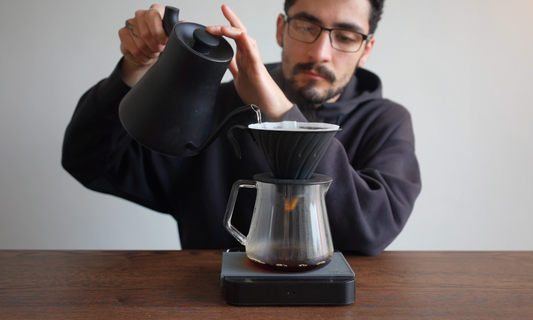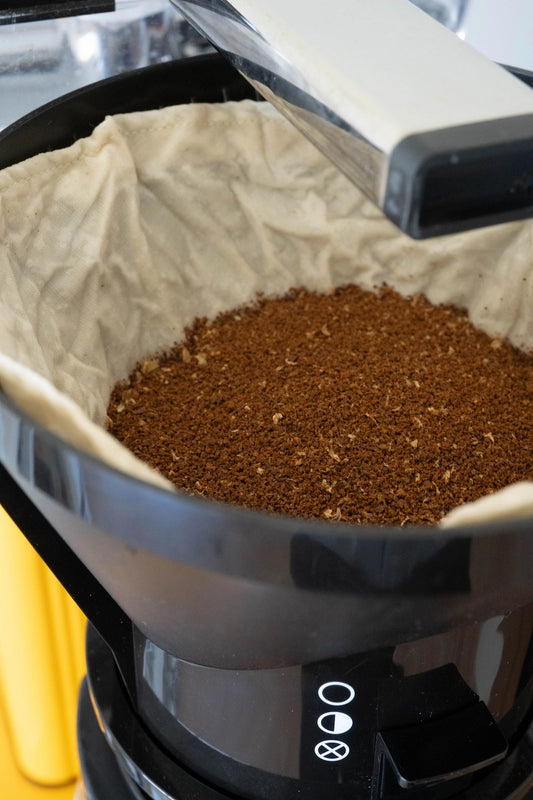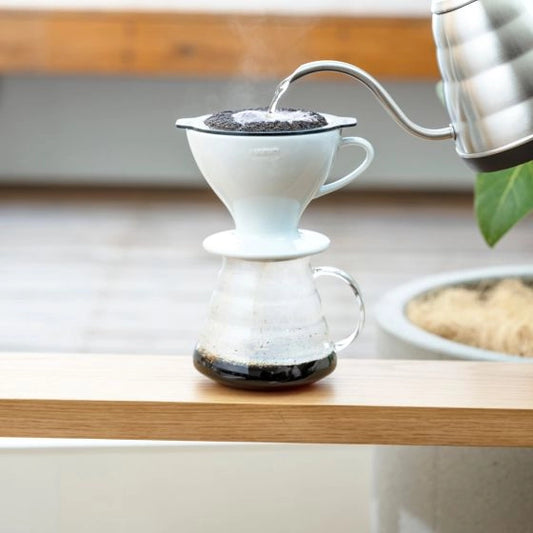
Taste Test Comparison: Paper vs Cotton Filters
Share this article
I have been brewing coffee using cotton filters for around 3 years now, in the scheme of things this really isn't a long time but in this time I picked up a couple of things that I want to share with you in this article.
Here at Basic Barista we are constantly looking to stock new brewing equipment, filters have been a good seller for us and it is important to us that we have a wide range of filters that our customers can choose from. So when it came to stocking a cotton filter we purchased a handful of different options and started our testing. None of the filters we purchased lived up to our standard, the cotton used was of a low grade and the sewing techniques contributed to a raw edge and a lacklustre design that frankly didn't stand up over time.
What is an AJi Filter?
Born from frustration is the Aji Filter, a Reusable Cotton Coffee Filter made from a high quality hand loomed natural cotton sourced from a Social Enterprise in Bihar, India. The goal of the Aji Filter was to make a better reusable filter that can be used just like a paper filter.
Enough about our Aji Filter, let's get into the physical differences:
Paper is a natural resource, like cotton and at the end of it's life both can be returned back to the earth in the form of composting. The biggest difference is that the paper filters are a single use item while cotton filters are reusable.
Besides this, when it comes to brewing the cotton material used in the Aji Filter has much larger holes compared to paper filters.
The larger hole size results in 2 things, the first is that more particles can pass through resulting in a creamy and heavier bodied tasting coffee. The second is a faster flow, often brewing with Aji Filters you will have to adjust your coffee grinder a little finer to slow down your brew. With that being said a 5 stage pour over using the correct grind size can achieve a 3-4 minute brew time.
Read How to brew Aji Filter.
Stop Cloth Filters tasting bad:
Wet cotton is the perfect breeding ground for mildew, the same mold that give your clothes a funny smell when left in the washing machine for too long.
If you are noticing any funny taste try reboiling your filter, boiling your filter will be enough to remove any negative tastes.
Learn more about the Cotton used in Aji Filters.
This being said the Cotton Material used in Aji Filters is lightweight and retains much less water after brewing compared to other cotton filters, this makes Aji Filters much quicker drying. The lightweight material also helps to stick to the side of the walls of your dripper and lower the bypass when brewing.
Read How to Clean Aji Filters.
What Do Cotton Filters Taste Like?
As we touched on earlier Cotton has larger hole size compared to paper filters, with more particles able to pass through your coffee will have a higher concentration of coffee oils. This results in a full bodied tasting cup of coffee with an added element of rich creaminess that you just don't find with paper filters.
The fast flow of the cotton filters also allows you to grind finer and extract higher with the same brew time as when making coffee with paper on a much coarser grind size.
Tasting Natural vs Washed coffees:
When brewing natural or heavier fermented coffees that tend to have a stronger acidity and overall taste using an Aji Filter will have a more 'rounded' acidity compared to a paper filter. We found that for washed and more delicate coffees brewing with an Aji Filter highlights clarity and expresses the coffee with lower acidity much better. At the end of the day this has a lot to do with personal preference.
Learn more about the Cotton used in Aji Filters.








